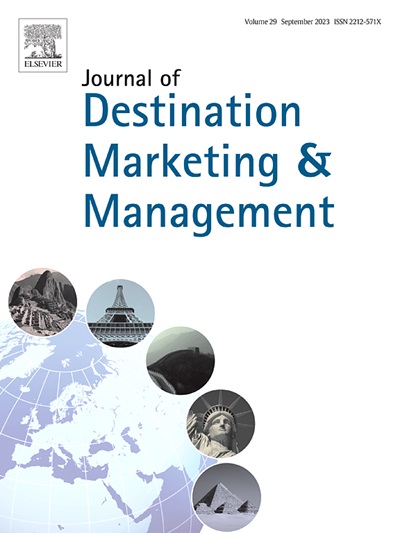沉浸式体验在旅游营销中的协同作用:揭示“虚拟世界”中富有洞察力的组成部分
IF 7.4
2区 管理学
Q1 HOSPITALITY, LEISURE, SPORT & TOURISM
引用次数: 0
摘要
目的 本研究探讨了元宇宙中的新营销实践,重点是创造身临其境体验的组成部分和战略。它结合可持续发展目标(SDGs)和环境、社会及治理(ESG)原则,研究了元宇宙与身临其境的体验之间的关系,并由此制定了 "元宇宙旅游营销生态系统"(MTME)框架。设计/方法/途径本研究采用 PRISMA 流程进行系统文献综述(SLR),首先对 Scopus 数据库中的 4174 篇研究文章进行了文献计量分析。专题分析提取了商业背景下新兴旅游营销趋势的主要专题,并根据 PRISMA 标准筛选出 41 篇相关文章。文献计量分析提供了有关超时空营销的概述,而专题分析则确定了文本数据中反复出现的主题,从而为营销实践提供了有价值的见解。进一步的分析确定了以三个基本营销要素为中心的主题:相互关系"、"相互功能 "和 "互操作性 "是实施的基本要素。深入的主题分析发现了与沉浸式体验相关的三个主要知识差距:认知、情感和虚拟沉浸。此外,本研究还倡导虚拟领域的可持续参与,与可持续发展目标保持一致。本研究提出了 "元宇宙旅游营销生态系统",这是一个在沉浸式虚拟环境中优化旅游营销的创新框架。通过加强对用户行为的理解,它可以促进身临其境的体验,并为有效的营销战略和政策规划提供信息。本文章由计算机程序翻译,如有差异,请以英文原文为准。
The synergy of immersive experiences in tourism marketing: Unveiling insightful components in the ‘Metaverse’
Purpose
This research explores new marketing practices within the metaverse, focusing on components and strategies that create immersive experiences. It examines the relationship between the metaverse and immersive experiences alongside Sustainable Development Goals (SDGs) and Environmental, Social, and Governance (ESG) principles, leading to the development of the ‘Metaverse Tourism Marketing Ecosystem’ (MTME) framework.
Design/methodology/approach
The study employs the PRISMA process for a systematic literature review (SLR), initially evaluating 4174 research articles from the Scopus database for bibliometric analysis. Thematic analysis extracts major themes in emerging tourism marketing trends within a business context, narrowing down to 41 relevant articles based on PRISMA criteria. Bibliometric analysis provides an overview of metaverse marketing, while thematic analysis identifies recurring themes in textual data, yielding valuable insights into marketing practices.
Findings
The findings reveal nine initial themes for immersive marketing in tourism. Further analysis identifies a main theme centered on three fundamental marketing components: ‘Interrelationship,’ ‘Interfunctionality,’ and ‘Interoperability,’ which serve as foundational elements for implementation. In-depth thematic analysis uncovers three primary knowledge gaps related to immersive experiences: cognitive, emotional, and virtual immersion.
Originality/value
This research significantly contributes by analyzing limitations in current studies, advancing knowledge and practices in metaverse marketing, and providing systematic insights into marketing evolution. Additionally, the study advocates for sustainable engagement in the virtual realm, aligning with SDGs. This study proposes the 'Metaverse Tourism Marketing Ecosystem,' an innovative framework for optimizing tourism marketing in immersive virtual environments. By enhancing user behavior understanding, it fosters immersive experiences and informs effective marketing strategies and policy planning.
求助全文
通过发布文献求助,成功后即可免费获取论文全文。
去求助
来源期刊
CiteScore
18.60
自引率
3.60%
发文量
46
审稿时长
43 days
期刊介绍:
The Journal of Destination Marketing & Management (JDMM) is an international journal that focuses on the study of tourist destinations, specifically their marketing and management. It aims to provide a critical understanding of all aspects of destination marketing and management, considering their unique contexts in terms of policy, planning, economics, geography, and history. The journal seeks to develop a strong theoretical foundation in this field by incorporating knowledge from various disciplinary approaches. Additionally, JDMM aims to promote critical thinking and innovation in destination marketing and management, expand the boundaries of knowledge, and serve as a platform for international idea exchange.

 求助内容:
求助内容: 应助结果提醒方式:
应助结果提醒方式:


